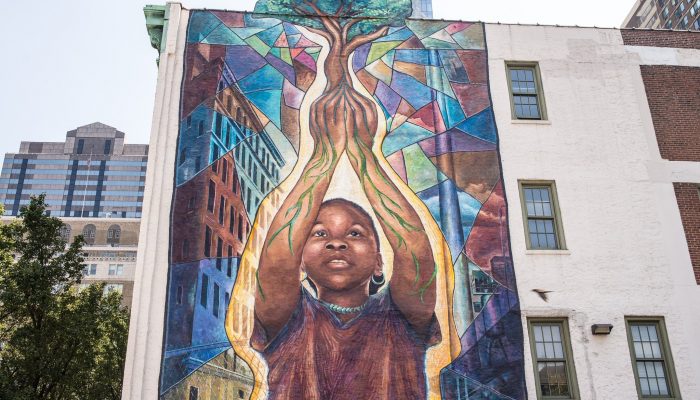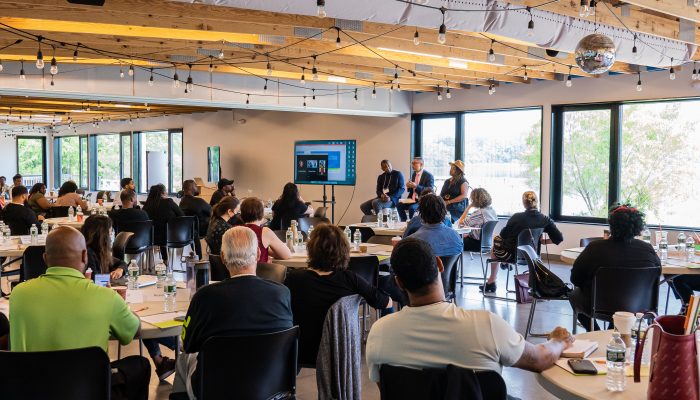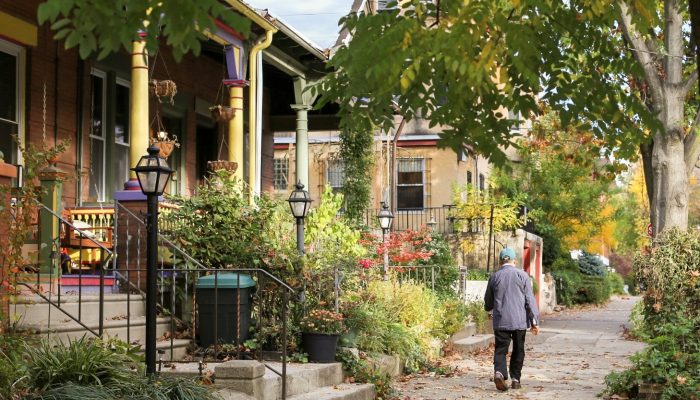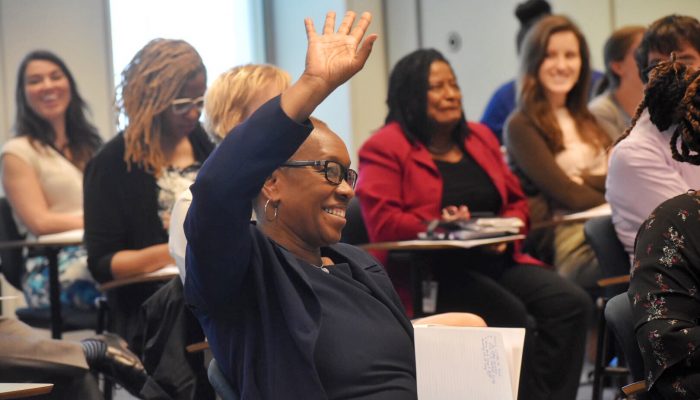In 2020, Philadelphia lost 447 people to gun violence–the most gun-related homicides in 30 years. 2021 is on track to be the worst year on record. Solutions must expand to match the scale of the problem.
Structural racism and inequality is often at the root of gun violence
Unemployment, poverty, under-resourced schools, and lack of educational attainment remain drivers of violence. In addition to targeted interventions, we must continue to harness the City’s large-scale investments in education and health, and stay committed to reducing unnecessary and disproportionate contact with the justice system and incarceration for Black and Brown Philadelphians.
COVID-19 set us back
Despite growing need, key interventions had to suspend services to retool their approach in light of social distancing, and a $760 million budget gap in FY21 that stretched City of Philadelphia (City) resources.
The criminal justice system also had to largely shut down in response to the pandemic. While arrests for illegal firearm possession were up 31 percent, conviction rates dropped from 75 percent to 50 percent.
Moving forward
In 2021, we will redouble our work detailed in the Roadmap to Safer Communities, investing a total of $18.7 million of additional funding in FY22 on anti-violence efforts for a total of $35.5 million of investment.
Over the life of the FY22-FY26 Five Year plan this is an additional investment of $70 million.
Direct interventions in high violence areas
Mayor Kenney’s FY22 budget calls for $2 million for job training and $300,000 in philanthropic funding to launch a Summer 2021 pilot of the Rapid Employment and Development Initiative (READI). The model, currently deployed in Chicago, relentlessly engages those highly at-risk and connects them to cognitive behavioral therapy, paid transitional jobs, and support services.
Mayor Kenney’s FY22 budget also calls for an additional $1.3 million investment for the Group Violence Initiative and Community Crisis Intervention programs, bringing the total investment to $6.6 million for FY22.
$1.35 million is earmarked for community improvements including graffiti clean up, vacant lot remediation, clean and seal efforts, and improved lighting and visibility in key neighborhoods.
We will also expand the Philadelphia Police Department’s Operation Pinpoint program to 45 new areas by redeploying existing resources.
Investing in new tools and protective factors
Launching in early summer 2021 and expanding over the year, the City will invest $6 million to implement a city-wide 24/7 911 Triage & Co-Responder Program. It has two key components:
- 911 call triage infrastructure designed to better identify and respond to behavioral health crisis calls to 911 and from patrol officers. This includes changes to the call-taker script and enhanced training in de-escalation and other crisis intervention techniques. The City will also invest an additional $2.6 million for 75 new dispatchers to ensure 911 is staffed to manage these new activities.
- A pilot co-responder program to respond to 911 calls and requests from patrol officers for help with people in crisis launching this month. Co-responding teams of a Crisis Intervention Team Police Officer paired with a behavioral health clinician, to go out together to the site of 911 calls where an individual is in need of behavioral health support. Peer-based follow-up teams will then help individuals connect to services in the community.
The City will also invest $7.2 million to expand the Philadelphia crisis hotline and mobile crisis teams and to connect them to the 911 process, providing an additional option for response. The Philadelphia crisis line provides telephonic crisis stabilization intervention and can deploy mobile crisis teams, which are mental health professionals trained to stabilize individuals during crises and able to be deployed in targeted areas as well as citywide. With the rise in violence, this investment will support the growing need for mental health crisis response services as well as support 911 referrals.
Mayor Kenney is calling for a $10.6 million investment for expanded hours at libraries, recreation centers, pools, career exposure, and tuition-free college. Access to quality education along with summer and afterschool enrichment and positive physical development opportunities are proven protective factors for young people. Recognizing the urgent need to reclaim safe spaces and expand positive activities and interactions with caring adults for older youth this summer, the City will return Free Library branches to five-day/week services, restore recreation centers hours and reopen pools.
The Office of Children and Families is also partnering with the School District on summer academic and enrichment programs for students, and supporting expanded WorkReady career exposure and work experience opportunities.
The City will continue to expand educational opportunities for older youth by investing an increasing share of the City’s budget directly into the School District of Philadelphia and Community College of Philadelphia (CCP), including additional funding for the Catto Scholarship at CCP to expand access to tuition-free college.
New community engagement tools
To address the scale of this crisis, residents must be at the table in new ways. The City is redeploying $355,000 in funds to launch new efforts to elevate youth voices, and include residents in decision-making on how to tackle challenges. A few of those efforts are:
- The Next Gen Taskforce will develop youth leaders in neighborhoods vulnerable to gun violence.
- The Police Youth Advisory Commission is a youth-led initiative, where members will meet with the Police Commissioner and staff regularly to advocate for changes and resources.
- The Social Media Influencers program will hire youth leaders and other community voices to be trusted messengers and develop messaging that will engage youth in community members in positive activity.
- Community stakeholders will be invited to join Roadmap Tactical Meetings for the first time, where key partners bring in intelligence about hotspot areas and devise real-time solutions.
Additional public safety and police reform investments
Nearly $2 million is proposed to establish a new Citizen Police Oversight Commission to restore public confidence, to review citizens’ complaints, and to create better police community interactions.
The Plan also allocates $750,000 for expanded police officer training to ensure that officers have the tools and skills to make good decisions when put in difficult situations.
$400,000 is earmarked for the Early Intervention System, a critical piece of the police reform plan which uses technology to help identify and reward positive officer behaviors as well as intervene before an officer is in a situation that warrants formal redirection through counseling and or education, based disciplinary action.




